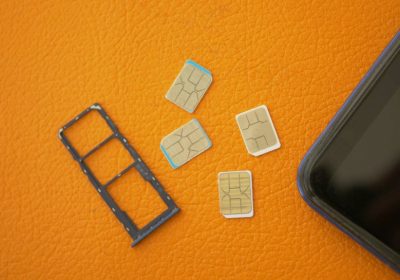Trial told of `mobile fraud kit’
The jury heard that the gang had hardly begun phase three of its operation in Scotland in premises just off Sauchiehall Street when police moved in and made arrests.
Andrew Stone, 30, has admitted that he was involved in a conspiracy with a named individual and others unknown to steal from Abbey National and central clearing banks.
The jury of six men and six women were told yesterday that when Mr Stone was arrested his Rover car was to provide a wealth of evidence.
The material recovered from the vehicle included sophisticated video camera equipment and a telephoto lens that had been reported lost during the first phase of the alleged scam in Croydon.
This machine was capable of re-encoding information from legitimate bank cards onto magnetic tapes on plastic cards that are frequently given to customers to build up points for gifts or discounts.
The jury was also told by Mr Michael Holland, prosecuting, that premises raided by the police contained almost nothing that was not involved in the alleged crime – perhaps just a desk, he said.
There was even a cardboard box with a hole covering the windows in the basic Old Bake House offices in Bursledon, Hampshire.
This, said Mr Holland, was presumably so the hole-in-the-wall gang could perfect their filming technique of Abbey National account holders entering cards into cash dispensers.
The scam involved the use of powerful lenses on video cameras recording information from cash cards being inserted into dispensing machines and also picking up four digit Pin numbers as they were keyed in on a pad by customers.
For days two cameras were trained on cash machines. Later, it is alleged that the hole-in-the-wall gang cross referenced information from their recordings to gain unlawful access to accounts.
While Mr Stone has pled guilty to the conspiracy a person, who cannot be named for legal reasons, denies any involvement. Hence this trial.
The Crown says it is inconceivable that Mr Stone would take a passenger on in what he admits was a conspiracy to commit a crime. The stakes for him would be too high.
Should Mr Stone employ an innocent person in the enterprise it was possible that he would tell the police.
According to counsel, Glasgow was the third and last stage of an operation that had already stolen more than #120,000.
But for the police operation it could have gone on. Mr Holland insisted there is more than sufficient evidence to link the accused with the conspiracy.
He told the jury that by the time a Glasgow cashpoint was targeted by video cameras, the gang had sharpened up their operation. “They were hotting up,” he said.
While it had taken up to two weeks to film credit cards being inserted in Croydon and Pin numbers being entered, by the time the scam reached Scotland premises were rented out for only a few days.
Almost straight away they were making the “big hits” on Glasgow accounts in the south of England. These were from cards that had been cloned on the fake cards.
It was, said Mr Holland, a highly sophisticated, highly organised criminal operation, going for high stakes.
He added that Mr Stone, who has admitted his guilt in the conspiracy, was not going to take on a passenger.
The trial will continue on Monday.






No Comment! Be the first one.